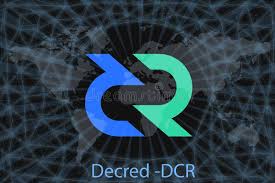The Filecoin (FIL) project is conceived as decentralized storage of electronic files, using, instead of the usual HTTP, the innovative IPFS protocol, which, by the way, is being developed by the same Protocol Labs. Initially, it was assumed that IPFS and Filecoin would be tested and developed in parallel and, of course, the implementation of such a global innovation requires huge resources and time. This largely explains the low startup rates of the system. By and large, Filecoin is a modernized version of the World Wide Web.

And why such difficulties you ask, it seems, and so everything is fine? Well, if you live in Europe or North America, then, at first glance, it is so. Although many experts do not think so and take off according to almost the entire population of India, Africa, and South America. The lion’s share of traffic is controlled by servers located in the EU and the US, so using the Internet while living in Nairobi or Bangalore is quite problematic. And if someone can damage the transatlantic fiber optic cables, then the citizens of developed countries will also be in trouble.
Filecoin ecosystem
The Filecoin distributed network offers a ready-made solution to this problem. The new communication protocol allows data to be fragmented for storage across many small nodes. If it is necessary to download the system, it will select the nearest node and thus increase the speed of information transmission many times over. Network users will no longer be hostages of large providers and will be able to freely exchange information without censorship and covert surveillance. Besides, everyone will be able to receive rent in the fil cryptocurrency by providing free space on their drives for storing data. Appearance history and team
As already mentioned, the American company Protocol Labs is the initiator of the project. The idea of launching a network of decentralized data storage arose a long time ago and, in principle, it has already been partially implemented in torrent trackers. But for global application, it was necessary to modernize the communication protocol and create an incentive system to attract participants. Without your cryptocurrency, the implementation of the second point is extremely difficult.
The project is led by the CEO of Protocol Labs – Juan Benet. His track record includes a degree from Stanford University and a job at the computer game studio Loki Studios. Benet is one of the developers of the Y Combinator engine that runs Protocol Labs. The team consists of professional programmers, blockchain engineers, and marketers.
Advantages and disadvantages of the project
Pros of filecoin:
- The work of the project is controlled by the national regulator
- Data is encrypted before being sent to storage
- The user can earn cryptocurrency by accepting files for storage
Relatively low cost of services
Unlimited network expansion options
The coin is listed on Binance and other reputable platforms
Cons of filecoin:
- The project has not yet passed the test of time
- The system of remuneration for miners is not fully thought out
Potential
The value of the cryptocurrency depends on the increase in the scale of the network and the volume of market trading. But development will be held back by companies working in this area. Until the massive transition of the network to the blockchain, Filecoin and similar projects will not be able to repeat the success of Bitcoin.
Support for regular users will be mining and token speculation. At the same time, a large business using cloud storage services is interested in a lower cost, independent choice of terms of cooperation, decentralization, and additional protection of transmitted data. The presence of such networks will allow even small companies to successfully operate in this area.









